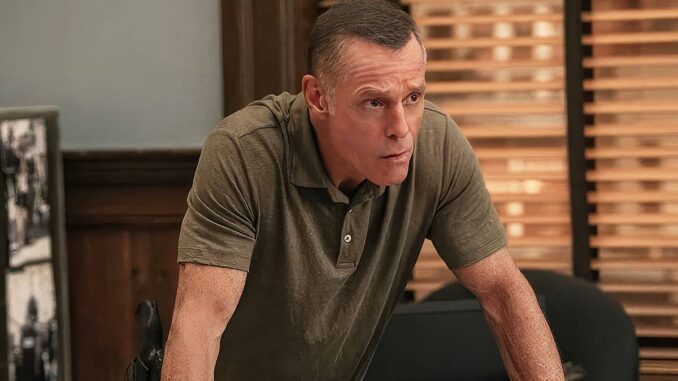
The siren's wail, a familiar lament cutting through the Chicago night, has long been the opening note to the gritty symphony of Chicago P.D. For twelve seasons, viewers have witnessed the unyielding struggle of Intelligence Unit, a team forged in the crucible of urban crime and held together by the gruff, unwavering hand of Sergeant Hank Voight. Their precinct, their methods, their very identity, have felt as immutable as the city's skyline. But if the whispers of a "Season 13 Teaser" are to be believed, predicting a "Major Shake-Up" for Intelligence, then the foundations of that edifice are about to tremble, promising a seismic shift that could redefine the very soul of the show.
An illustrative essay on this impending change must first paint the picture of what Intelligence is before imagining what it might become. At its core, Intelligence is a family, albeit a dysfunctional one, bound by shared trauma, fierce loyalty, and a collective commitment to justice that often dances on the edge of the law. Voight, the grizzled architect of this unit, operates in shades of grey, his moral compass calibrated not by protocol, but by the raw demand of protecting his city and his people. His detectives – Hailey Upton, Adam Ruzek, Kevin Atwater, Kim Burgess – each carry their own scars, their own ethical tightropes walked, but all united in their unwavering trust in Voight and each other. The "shake-up" then, isn't merely a plot device; it's a direct assault on this tightly woven fabric.
Imagine the teaser: a montage of quick, disorienting cuts. A shot of the familiar bullpen, but something is off – an empty desk, a closed door where there was once an open one, a new face observing with detached authority. The "major shake-up" could manifest in several crucial ways, each threatening to unravel the unit's established dynamics.
Firstly, there's the personnel shift. This is the most direct and visceral form of upheaval. Could a key member depart, leaving a gaping wound in the team's heart? The ghost of past departures – Olinsky, Halstead – still lingers, reminding us how profoundly a missing piece can alter the unit's chemistry. An empty chair at the briefing table would speak volumes, not just of a missing person, but of the emotional void left behind. Or perhaps, a new, unwelcome addition – a hard-nosed Internal Affairs mole, a by-the-book commander with no patience for Voight's methods, or a politician's appointee intent on dismantling their approach. The friction would be immediate, a constant hum of distrust and resentment challenging the very notion of teamwork. This isn't just about actors leaving; it's about the emotional architecture of the unit cracking under pressure, forcing the remaining members to re-evaluate their alliances and their own identities within the team.
Secondly, the shake-up could involve a fundamental challenge to Voight's authority and methods. His "ends justify the means" philosophy, while effective, has always put him at odds with the official chain of command. A "major shake-up" could see this fragile truce shattered. New departmental policies, stricter oversight, or a high-profile case gone wrong could force Voight into a metaphorical straitjacket, compelling him to operate within boundaries he finds intolerable. This would not only lead to explosive confrontations but would also ripple through the team. How would the detectives, accustomed to Voight's unspoken directives and protective instincts, adapt to a more bureaucratic, less personal form of leadership? The moral ambiguities they navigate daily would become starker, the stakes of their choices even higher, as the shield of Voight's unconventional wisdom might no longer protect them.
Finally, the shake-up might be existential, a questioning of the Intelligence Unit's very purpose in a changing world. Police reform, community relations, and the evolving perception of law enforcement are real-world issues that Chicago P.D. has often grappled with. Season 13 could see Intelligence thrust into an environment where their traditional aggressive tactics are deemed obsolete or harmful. They might be forced to adopt new strategies, engage more deeply with community leaders, or even face significant budget cuts that limit their operational scope. The pressure from external forces – public scrutiny, political agendas – could combine with internal turmoil, forcing the team to confront whether their brand of justice still has a place, or if they too must evolve or risk becoming irrelevant.
The "md07" tag, a minor detail in the prompt, serves as a stark, almost clinical identifier, juxtaposed against the raw emotion and human drama of a "major shake-up." It highlights the disconnect between the administrative label and the profound personal and professional impact. For Chicago P.D. Season 13, this shake-up promises not just new storylines, but a crucible for its beloved characters. It will test their bonds, challenge their convictions, and force them to forge a new path in the unforgiving urban labyrinth. The siren will still wail, but its tune may become a dirge, or perhaps, a defiant anthem of a unit reborn. The future of Intelligence Unit hinges on whether they can weather this storm, or if the "major shake-up" will finally break them.
